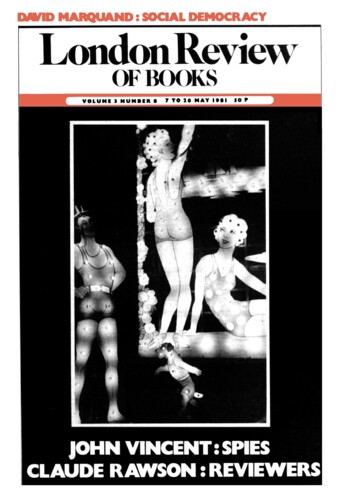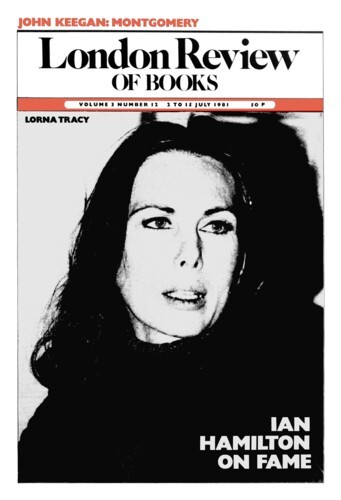Southern Comfort
Claude Rawson, 16 April 1981
‘In 1979 Robert Penn Warren – novelist, critic, and dean of American poets – returned to his native Todd County, Kentucky, to attend ceremonies in honor of another native son – Jefferson Davis, president of the Confederacy, whose United States citizenship had just been restored, ninety years after his death, by a special act of Congress.’ The scene is set for a fine old feast of Southern Nostalgia, a versatile literary property whose manifestations range from memorable poignancies of anguished belonging, self-division and loss, to a vulgar stereotype of vaguely dyspeptic graciousness, all mint-julep and magnolia and nagging resentful memories of old gallantries downtrodden. From Warren at his best, as from Faulkner, and the Allen Tate of The Fathers, we expect the former. The blurb from which I quoted arouses apprehensions of the latter. Warren’s latest book falls somewhere in between, alas tilting somewhat to the blurb.





